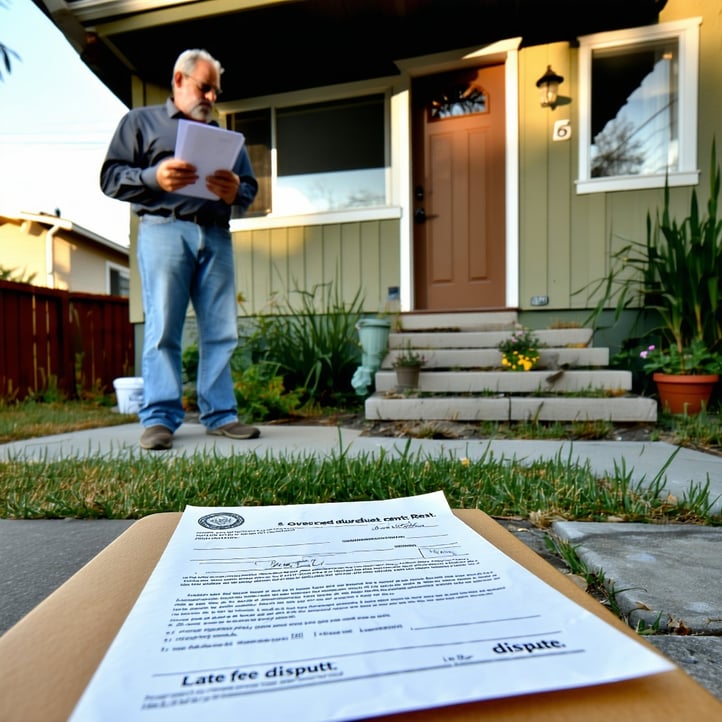As a Carlsbad landlord, you're always looking out for developments across California that could impact your business. California has seen a few changes in state law in 2019 that will probably touch your operations in some way. These developments range from regulations governing evictions during a period of disaster to the installation of electric vehicle stations, but they are all things that you may encounter at some point.
1. Calculation of 3-Day Notices and Summons
Assembly Bill 2343 extends waiting periods for certain notices and summons under specific circumstances. In the past, California law allowed weekends and holidays to count towards three day notice periods (although a notice couldn't expire on a weekend or holiday). This amends Code of Civil Procedure §1161 to expressly exclude Saturdays, Sundays, and other judicial holidays when calculating notice periods. As a Carlsbad area landlord, you'll primarily encounter this when dealing with three day notice periods for non-payment of rent or notices to perform covenant. This rule does not extend to extended notice periods, such as 30 or 60-day termination notices or notices regarding unauthorized subletting, nuisance, and waste. While this change may not have an enormous impact on your operations, you want to be attentive to the change in tenant rights concerning this procedure.

2. Eviction During a Declared Emergency
Assembly Bill 1919 impacts specific actions that you can take as a landlord during periods of declared emergency in the state of California. Previously, the law dictated that rental housing was subject to a rent limitation upon the proclamation of a state of emergency concerning a specific county. Your Carlsbad property was limited to a 10% rent increase in the event of a declared emergency in San Diego County, expressly. This cap remained in effect for 30 days after the declaration of an emergency. This bill makes a few changes to this existing law.
The new law retains the 10% maximum price increase and adds a few other provisions. The bill clarifies that the rent increase cap remains in effect during an extension of an emergency. The bill also expands the law to cover rental housing that was not on the market at the time of the declaration of emergency. Finally, AB1919 makes it illegal to evict a tenant without cause during a state of emergency. You should be aware that the new law does allow rental price increases of more than 10% under specific circumstances.
- The increase must be directly attributable to additional costs associated with repairs or additions beyond routine maintenance amortized over the rental term.
- A rent increase is also permitted if it was agreed to by the tenant before the declaration of emergency.
The bill also expands the scope of the law to make it applicable beyond counties currently undergoing a declared state of emergency. The bill is intended to prevent price increases anywhere in the state where there might be increased demand for housing as a result of an emergency. You will still be bound by the provisions of this law if there are wildfires in Riverside or San Bernardino Counties for example.
3. Electric Vehicle Charging Stations
Assembly Bill 1796 makes a few changes to Civil Code §1947.6, which governs the installation of electric vehicle charging stations. This class of vehicle is becoming increasingly common, so expect to see more cars of this type on the road and changes to laws that govern them in the future. The law previously required that landlords approve written requests by residents to install electric vehicle charging stations at their cost in their allotted parking space or spaces. The law excluded properties with fewer than five spaces or any properties that were subject to a rent control ordinance. This bill eliminates the exemption for rent-controlled properties for any lease that is executed, extended, or renewed on or after January 1st of 2019. The exemption for properties with fewer than five parking spaces remains, but be alert to continuing changes in this area in the future.
4. Third-Party Payments
Finally, Assembly Bill 2219 amends Civil Code §1947.3 and requires that landlords accept third-party rent payments under a couple of conditions. The payor must provide the landlord with a signed acknowledgment that they are not a current tenant. The payor must also acknowledge that the landlord's acceptance of a third party rent payment does not establish any new tenancy with the payor. Receipt of third-party payment is not intended to require you to enter into a contract with any federal, state, or local housing assistance program. In other words, you can accept payment from a third party, but that acceptance does not imply that you are establishing any contract with that third party. Additionally, the law does not require you to provide a form to accept third-party payments (although you are free to do so).

An Expert Carlsbad Property Manager Is Your Guide
These are just a few examples of the changes that can happen from month to month. If you don't have your senses alert, you might miss something important. A good Carlsbad property management company can help you stay ahead of changes in the legal and regulatory landscape.
Raintree Property Management is well-versed in local laws, rental demographics, and new trends in housing. We keep our eye on the state legislature to help support our owner-partners. Reach out to us online or by phone for a free consultation. Let us show you how we put our high-tech approach to work for your property!





